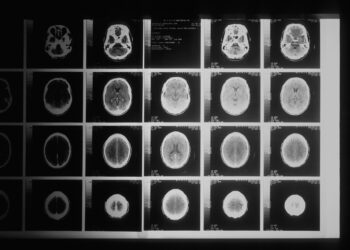Introduction: The Link Between Caloric Intake And Lifespan
In the pursuit of longevity, scientists have long sought to unravel the complex relationship between diet and lifespan. One intriguing avenue of research suggests that consuming fewer calories could be the key to a longer life. While it may seem counterintuitive, numerous studies across various organisms, ranging from yeast to primates, have shown a consistent connection between reduced caloric intake and increased lifespan. [Sources: 0, 1, 2]
These findings have ignited interest in understanding the underlying mechanisms behind this phenomenon and its potential implications for human health. By exploring the intricate interplay between caloric restriction and aging processes, scientists hope to uncover insights that could pave the way for interventions promoting a healthier and extended lifespan. [Sources: 3, 4]
Understanding Caloric Restriction: What Does It Mean To Eat Less?
Caloric restriction, a dietary practice that involves consuming fewer calories than the body needs for maintenance, has gained significant attention for its potential to promote longevity and enhance overall health. By consciously reducing calorie intake, individuals aim to optimize their metabolic processes and delay the onset of age-related diseases. While caloric restriction does not advocate starvation or deprivation, it encourages mindful eating by focusing on nutrient-dense foods that provide essential vitamins, minerals, and antioxidants. [Sources: 5, 6, 7]
Research suggests that this practice triggers various physiological responses within the body, such as improved insulin sensitivity and reduced inflammation. However, it is important to approach caloric restriction under proper guidance to ensure adequate nutrition while reaping its potential benefits in extending a healthy lifespan. [Sources: 8, 9]
The Science Behind Longevity: Exploring The Mechanisms At Work
Understanding the intricate mechanisms that link calorie restriction to longevity has been a subject of intense scientific investigation. Researchers have discovered that eating less can trigger a cascade of cellular and molecular processes that promote health and extend lifespan. One key pathway involves the activation of sirtuins, a group of proteins responsible for regulating various biological functions. Calorie restriction prompts these sirtuins to enhance DNA repair, increase mitochondrial function, and improve cellular stress resistance. [Sources: 5, 10, 11, 12]
Furthermore, reduced caloric intake also activates autophagy, a process in which cells recycle damaged components to maintain their integrity. These physiological responses collectively contribute to enhanced metabolic efficiency, reduced inflammation, and improved overall health, ultimately paving the way for increased longevity. [Sources: 13, 14]
Benefits Of Caloric Restriction: Extending Healthy Lifespan
The benefits of caloric restriction extend beyond weight loss, offering a potential path to extending a healthy lifespan. Studies have shown that reducing calorie intake without malnutrition triggers a range of biological responses that promote longevity. Caloric restriction activates cellular repair mechanisms, reduces oxidative stress, and enhances the body’s ability to combat age-related diseases such as cancer, diabetes, and cardiovascular disorders. Additionally, it has been found to improve cognitive function and protect against neurodegenerative conditions like Alzheimer’s disease. [Sources: 15, 16, 17, 18]
By restricting calories, individuals can lower their risk of age-related ailments and maintain optimal health as they grow older. This approach holds promise in unraveling the secrets of longevity and achieving a longer, healthier life. [Sources: 19, 20]
Beyond Dieting: Combining Caloric Restriction With Nutrient-Dense Foods
While the concept of eating less for longevity has gained significant attention, simply reducing caloric intake may not be enough. The key lies in combining caloric restriction with nutrient-dense foods. Instead of focusing solely on the quantity of food consumed, individuals should prioritize the quality and nutritional content of their meals. Studies suggest that a diet rich in essential nutrients, vitamins, and minerals can promote cellular health and reduce the risk of age-related diseases. [Sources: 21, 22, 23, 24]
By choosing whole grains, lean proteins, fruits, vegetables, and healthy fats, individuals can ensure their bodies receive vital nourishment while consuming fewer calories overall. [Sources: 25]
Potential Risks And Considerations: Is Caloric Restriction For Everyone?
Potential Risks and Considerations: Is Caloric Restriction for Everyone? While caloric restriction has shown promising results in extending the lifespan of various organisms, it is important to acknowledge that this approach may not be suitable for everyone. Firstly, individuals with underlying health conditions such as diabetes or eating disorders should exercise caution when considering caloric restriction, as it may exacerbate their condition or lead to nutrient deficiencies. [Sources: 18, 26, 27]
Additionally, certain population groups like children, pregnant women, and older adults may have specific nutritional requirements that cannot be met through severe calorie reduction alone. Moreover, adhering to a restricted diet can be mentally and emotionally challenging for some individuals, potentially leading to disordered eating patterns or a negative impact on their overall well-being. [Sources: 9, 25]
Practical Tips For Implementing Caloric Restriction In Daily Life
1. Gradual Reduction: Rather than drastically cutting your calorie intake, start by gradually reducing portion sizes and limiting high-calorie foods. 2. Balanced Diet: Ensure your meals consist of nutrient-dense foods, including fruits, vegetables, whole grains, lean proteins, and healthy fats. This helps maintain essential nutrients while reducing overall calories. 3. Mindful Eating: Pay attention to your body’s hunger cues and eat slowly to allow for proper digestion and satiety signals. [Sources: 28, 29, 30, 31]
4. Meal Planning: Plan your meals to avoid impulsive eating choices or reaching for convenient but calorie-dense snacks. 5. Food Tracking: Keep a food diary or use smartphone apps to track your daily caloric intake accurately. 6. [Sources: 29, 32]
Conclusion: Embracing A Balanced Approach To Enhance Longevity
In conclusion, embracing a balanced approach to enhance longevity is crucial in today’s fast-paced world. While the idea of eating less to live longer holds promise, it is essential to strike a balance between caloric restriction and providing the body with the necessary nutrients. Instead of simply reducing food intake, focusing on consuming a nutrient-dense diet that includes whole grains, lean proteins, fruits, and vegetables can promote optimal health and increase lifespan. [Sources: 25, 33, 34]
Additionally, incorporating intermittent fasting or time-restricted eating patterns may offer similar benefits without the potential drawbacks associated with severe caloric restriction. Moreover, maintaining an active lifestyle and engaging in regular exercise are equally important factors for extending lifespan. By adopting a holistic approach that encompasses mindful eating habits and overall wellness practices, individuals can unlock the potential for a longer and healthier life. [Sources: 9, 35, 36]
Sources:
[0]: https://blog.insidetracker.com/increase-longevity-science-behind-living-longer
[1]: https://www.nationalgeographic.com/podcasts/overheard/article/what-science-tells-us-about-living-longer
[2]: https://slate.com/technology/2012/08/calorie-restriction-and-longevity-monkey-study-shows-hunger-doesnt-increase-longevity-but-type-of-food-does.html
[3]: https://journals.plos.org/plosmedicine/article?id=10.1371/journal.pmed.1003889
[4]: https://studyfinds.org/eating-day-time-add-years-to-life/
[5]: https://myacare.com/blog/caloric-restriction-and-longevity-how-less-equals-more-over-a-lifetime
[6]: https://www.thedailymeal.com/healthy-eating/hunger-game-eat-less-live-longer/
[7]: https://www.lifespan.io/topic/what-is-caloric-restriction/
[8]: https://www.rgare.com/knowledge-center/article/calorie-restriction-(cr)-what-is-it-and-what-does-the-research-tell-us
[9]: https://www.verywellfit.com/what-is-a-low-calorie-diet-2506557
[10]: https://academic.oup.com/biomedgerontology/advance-article/doi/10.1093/gerona/glad152/7206780
[11]: https://www.hhmi.org/news/eat-less-live-longer-unraveling-connection
[12]: https://www.ncbi.nlm.nih.gov/pmc/articles/PMC5685139/
[13]: https://www.nationalgeographic.com/magazine/article/can-fasting-help-you-live-longer-what-the-science-says
[14]: https://www.covingtonreporter.com/reviews/metaboost-reviews-should-you-try-meredith-shirks-metaboosting-connection-or-complaints/
[15]: https://www.lifevantage.com/us-en/blog/when-less-is-more-the-health-benefits-of-caloric-restriction
[16]: https://en.wikipedia.org/wiki/Calorie_restriction
[17]: https://www.govinfo.gov/content/pkg/CHRG-107shrg82918/html/CHRG-107shrg82918.htm
[18]: https://www.elo.health/articles/is-calorie-restriction-the-key-to-longevity/
[19]: https://sitn.hms.harvard.edu/flash/2020/can-calorie-restriction-extend-your-lifespan/
[20]: https://www.healthylongevity.clinic/blog/what-is-longevity-definition
[21]: https://cathe.com/can-eating-less-help-you-live-longer/
[22]: https://www.marksdailyapple.com/why-eating-less-doesnt-always-work/
[23]: https://www.aplaceformom.com/caregiver-resources/articles/appetite-loss
[24]: https://www.sanitarium.com/au/health-nutrition/vegetarian-eating/eating-a-vegetarian-diet-can-help-you-live-longer
[25]: https://novoslabs.com/why-the-novos-longevity-diet-goes-beyond-the-mediterranean-diet/
[26]: https://fullscript.com/blog/calorie-restriction-diet
[27]: https://www.cbc.ca/news/science/caloric-restriction-living-longer-through-fewer-calories-1.814446
[28]: https://www.mayoclinic.org/healthy-lifestyle/weight-loss/in-depth/calories/art-20048065
[29]: https://fitelo.co/weight-loss-diet-plan-for-men/
[30]: https://www.bhf.org.uk/informationsupport/heart-matters-magazine/nutrition/weight/quick-fixes
[31]: https://www.secondnature.io/us/guides/myth-busting/eat-less-move-more
[32]: https://cbygpj.creativwedding.de/
[33]: https://www.drlamcoaching.com/blog/calorie-restriction/
[34]: https://eatlikeanitalian.com/why-do-italians-live-longer/
[35]: https://www.foxnews.com/health/10-tips-live-100-more-than-wishful-thinking-longevity-experts
[36]: https://www.optum.com/health-articles/article/healthy-living/5-ways-lose-weight-without-counting-calories/










